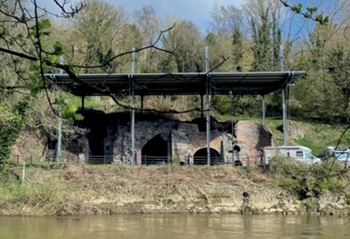Compulsory Alternative Dispute Resolution
Contents |
[edit] Introduction
Construction contracts usually provide for disputes to be dealt with by agreed dispute resolution procedures involving mediation, adjudication and arbitration. Often a combination of all three.
A very wide range of Alternative Dispute Resolution techniques are available. For more information, see Alternative dispute resolution.
[edit] Compulsory ADR report
In July 2021, the ‘Civil Justice Council Compulsory ADR report’ was published. The document was produced after Sir Geoffrey Vos, the Master of the Rolls asked the Civil Justice Council to review the legality and desirability of compulsory ADR. The conclusion of the report upheld the legality of compulsory ADR under Article 6 of the European Human Rights Convention.
Chair of the Judicial/ADR Liaison Committee and lead Judge for ADR Lady Justice Asplin acknowledged that more work needed to be done on the subject, but she concluded that ADR can - and should - be made compulsory under certain situations. She sees this as a necessary step in changing the overall cultural attitude towards ADR, which she feels will be beneficial for all parties involved.
Vos said the report will reshape the ADR process by stressing resolution rather than dispute. He said, “ADR should no longer be viewed as ‘alternative’ but as an integral part of the dispute resolution process.”
The report represented a change from the judicial approach of Lord Justice Dyson in 2011 who expressed concerns not only about the legality of compulsory ADR, but of its desirability.
Some experts see the shift as a reaction to UK courts that have become overwhelmed by an increasingly unmanageable backlog of cases. Under the revised approach, courts may begin to order parties to engage in ADR processes, especially if judges feel this will expedite an affordable resolution.
[edit] Call for Evidence
On 3 August 2021, the Ministry of Justice responded to the findings of the Civil Justice Council’s report on compulsory alternative dispute resolution by opening an eight week call for evidence on Dispute Resolution in England and Wales. The primary purpose of the measure is to seek input on the best ways to settle disputes.
The Ministry of Justice hopes to revise the system in a manner that decreases the number of cases that unnecessarily rely on the courts for resolution. Instead, it hopes to increase the uptake of less adversarial options through the introduction of innovative, technologically advanced processes. One approach under consideration is the promotion of pre-claim portals and court processes with integrated mediated resolution interventions.
[edit] Related articles on Designing Buildings
- Alternative dispute resolution.
- Alternative Dispute Resolution legislation.
- Causes of construction disputes.
- Conflict avoidance.
- Dispute avoidance.
- Dispute resolution.
- Dispute resolution procedure.
- Litigation.
- Mediation.
[edit] External resources
- Courts and Tribunals Judiciary, Civil Justice Council Compulsory ADR report.
- Ministry of Justice, Dispute Resolution in England and Wales.
Featured articles and news
The act of preservation may sometimes be futile.
Twas the site before Christmas...
A rhyme for the industry and a thankyou to our supporters.
Plumbing and heating systems in schools
New apprentice pay rates coming into effect in the new year
Addressing the impact of recent national minimum wage changes.
EBSSA support for the new industry competence structure
The Engineering and Building Services Skills Authority, in working group 2.
Notes from BSRIA Sustainable Futures briefing
From carbon down to the all important customer: Redefining Retrofit for Net Zero Living.
Principal Designer: A New Opportunity for Architects
ACA launches a Principal Designer Register for architects.
A new government plan for housing and nature recovery
Exploring a new housing and infrastructure nature recovery framework.
Leveraging technology to enhance prospects for students
A case study on the significance of the Autodesk Revit certification.
Fundamental Review of Building Regulations Guidance
Announced during commons debate on the Grenfell Inquiry Phase 2 report.
CIAT responds to the updated National Planning Policy Framework
With key changes in the revised NPPF outlined.
Councils and communities highlighted for delivery of common-sense housing in planning overhaul
As government follows up with mandatory housing targets.


















